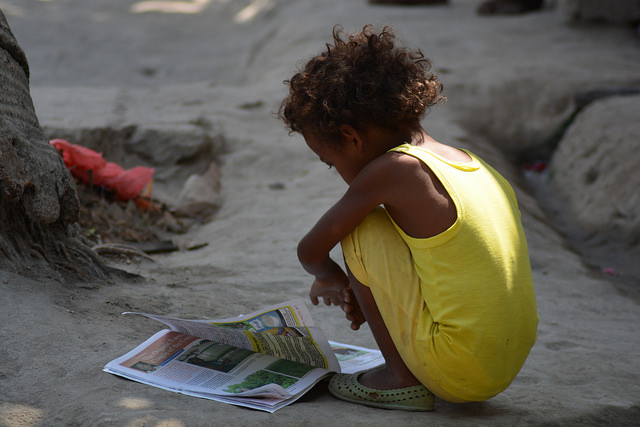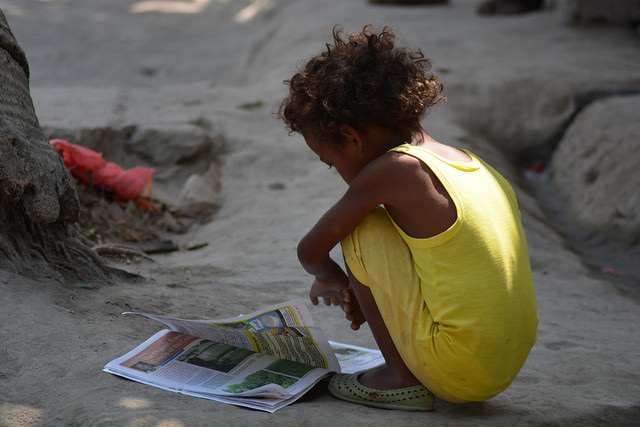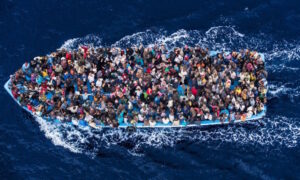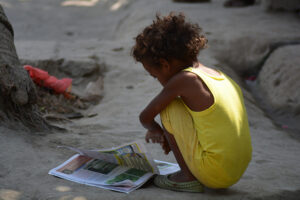

The terrifying shadow of illiteracy is spreading across the globe, causing concern, like the plot of the ominous film Idiocracy. In this film, by 2505, humanity will become the victim of a terrible IQ drop to a level of 20 points. It is easy to imagine that such a degradation of intelligence would lead to a catastrophic decline of economy, industry and everything else.
This thought is so alarming that it prompted me to write this blog. An additional motivation was the post of well-known human rights defender Malala Yusufzai on Instagram. She said that for the past 10 years she has traditionally celebrated her birthday with Nigerian students who are still fighting for their right to education.
Literacy is not a luxury, but a necessity
The problem of education is particularly acute in Nigeria. In the north-east of the country, the terrorist group Boko Haram has demolished 1,400 schools and killed 2,300 teachers in the last few years! Moreover, the regimes in Afghanistan and Iran are only exacerbating the situation. However, this is only the tip of the iceberg of a global problem spanning the planet.
According to UNESCO, 98 million children in sub-Saharan Africa are currently excluded from education, as well as 85 million boys and girls in Central and South Asia. These are the two leading regions in terms of illiteracy.
The situation worsened as schools were closed due to the corona virus outbreak. In low- and middle-income countries, the percentage of 10-year-olds unable to read simple text increased from 57% to 70% in 2019. This indicates a sharp decline in literacy. Prior to the pandemic in early 2020, 259 million children were out of school, representing one sixth of the world’s population in their age group. And these children will grow into more than 770 million adults who cannot read or write, two-thirds of whom are women.
Seeking funds
This disastrous situation requires urgent and substantial investment in education. The United Nations Children’s Fund estimates that at least $340 billion will be needed to solve this problem, and perhaps even more now. Although it is a huge sum, it is not insurmountable.
The planet is home to an abundance of wealthy and even immensely rich people. According to Forbes data for 2023, the number of billionaires has increased tenfold. Today there are 2,640 names on the list of the richest people in the world, compared with only 500 in 2000! The richest billionaires are the US, followed by China and India. A lot of them are also in Germany, the United Kingdom, Hong Kong, Canada, Italy, and Brazil.
As for millionaires, they cannot be counted. The 25 richest people in the world have assets estimated at $2.1 trillion. This huge sum exceeds their lifetime consumption, no matter how hard they try. It is time to think about what kind of world our children and grandchildren will be living in. Perhaps they will be confronted with a reality where the only people around them will be illiterate and disadvantaged. Illiteracy is approaching one billion adults, and two-thirds of them are women.
Of course, governments must be involved in this process. Every euro invested in education turns into 10-15 euros of economic growth in the future. Educated and free citizens will help countries cope with economic and climate challenges. And education will reduce armed conflict and violence against women, which are closely linked to poverty and illiteracy.
A significant step in this direction was the European Union’s pledge to allocate more than 10% of its partnership budget, or more than 6 billion euros, to global education. This is an important initiative, but much more needs to be done. I hope that other countries and billionaire philanthropists will also support this vital initiative.
By intended purpose
In addition, financial assistance to poor countries must be strictly targeted and monitored. It is not permissible for funds intended for education to fall into the hands of others or to be misused. International investment programmes should focus on the integrated development of individual regions, where the educational needs of the local population will be given priority. This is the only way to achieve real positive results.
Personal investment should also focus on supporting education. Some time ago, I donated more than 1 million euros to various programs supporting women, children and families. Particular attention was paid to the Artists for Peace and Justice Initiative, which supports local communities around the world through programmes in the areas of education, health and dignity.
Thus, the combined efforts of States, rich people and world organizations could halt the spread of illiteracy and provide education for every child on earth. This is a necessary step towards creating a better and brighter future for all of us.





